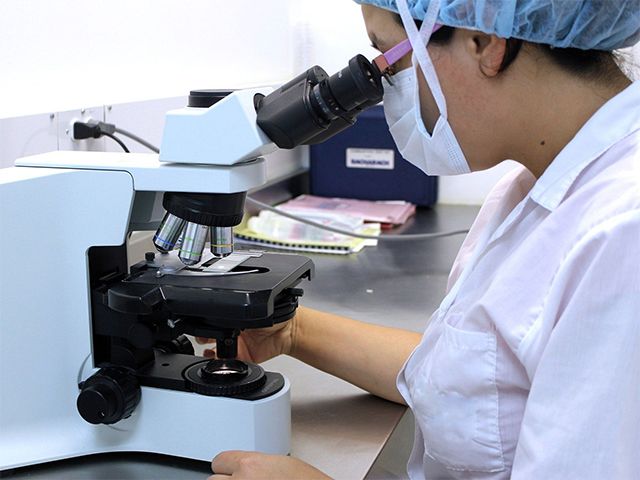Pandemic-Related Innovation: Don't Leave It to Markets

The Covid-19 crisis has put unprecedented pressure on health systems around the world. Curbing the effects of the virus requires a massive use of complex products, such as ventilators and testing equipment. Past large investments in science and R&D have led to inventions that enable hospitals to now use these indispensable products. Still, supply of products like these has proven insufficient to meet the enormous pandemic-induced demand. Consequently, governments are grappling to find solutions to avoid a breakdown of their healthcare infrastructure.
We argue that highly undesirable situations like these can only be avoided in the future if the innovation system regarding pandemic-related technologies is redesigned in a rather dramatic fashion. Currently, the interests of the business sector and society at large are not sufficiently aligned in this respect, which has proven to be fatal in a number of countries. A supranational coordination mechanism providing a different type of incentives is urgently needed.
Dependency on one company
We illustrate our perspective focusing on two cases. First, the Dutch newspaper De Volkskrant reported a couple of weeks ago that most Dutch hospitals could not increase their capacity to test for the virus. These hospitals predominantly rely on medical equipment from the pharmaceutical company Roche, which has a market share of 80%. The equipment requires the use of specific inputs, such as a "lysis buffer", which Roche also sells. Roche had trouble to meet the massive increase in worldwide demand. However, hospitals were not able to produce the buffer solution themselves, since the exact formula for the production process had been kept secret by Roche. The company eventually decided to make the recipe available, but only after this situation was reported and public and political pressure had piled up.
Shareholder interest
Secondly, an article in the New York Times discussed how the efforts of the US government to create a strategic stockpile of ventilators experienced several delays. In 2008, a small company, Newport Medical Instruments, was chosen to design and produce affordable ventilators. By 2011, the company produced three working prototypes, one of which was planned to be produced as of 2013. In 2012, however, the firm was acquired by a large company, Covidien, that decided to cancel the contract since the new ventilator would hurt its base business. The government decided to restart the project with another company (Philips) that promised to deliver the ventilators in late 2020, which by now seems to be too late.
The two firms acted in the interests of their shareholders, who want them to capture value from their investments in research. If the firms had not done this, the funding for their R&D would not have been available and tests and ventilators would not have been developed in the first place. Roche’s decision to protect knowledge related to the production of an essential input for their test equipment aims at maximizing its profits. Covidien abandoned the project started by Newport because the low-cost ventilators would cannibalize its profits on the more expensive ventilators it was selling already. After conducting a cost-benefit analysis, the company concluded that it would be more profitable to terminate the project. Roche and Covidien did what they were supposed to do in the market-based system they operate in. Still, terrible shortages of essential products emerged. A different solution is badly needed.
Innovation systems
In our view, well-functioning innovation systems cannot exist without the inputs of researchers in private companies. They have different bodies of expertise and diverse approaches, which can be complementary to government funded research. Their involvement requires that the investments have a decent rate of risk-adjusted profit. Currently, firms are allowed to make huge profits on successful innovation projects under the current government regulations: they charge high prices, pick the most profitable markets to cater to, and sell complementary products, while maintaining small stocks. Unsuccessful innovation projects result in losses. These eliminate part of the profits of successful projects. Firms need large profits to bear the risk of innovation failure.
To avoid the type of problems highlighted by the cases above and to ensure the involvement of companies in pandemic-related innovation, governments should remove the risk for firms. Participating companies should be paid a decent mark-up over the costs of their efforts, irrespective of whether they are the first to invent a product or not. Universities, public research agencies and companies could then work together in collaborative innovation processes, with open communication about newly generated knowledge.
Supranational oversight
A new design for fighting pandemics should not only focus on invention of new products, but also on the coordination of production capacity, strategic stockpiling and logistics. In designing its logistics and inventory management, a profit-maximizing firm cannot bank on a specific pandemic emerging once in a decade or even more infrequently. Hence, coordination by a public body is needed in this respect as well.
Since pandemics are a global phenomenon by definition, the overseeing agency should be a supranational organization. As the current debates about the alleged influence of China on decisions by the World Health Organization show, organizing a functional system will be far from easy given geopolitical considerations, but we do not see viable alternatives.
The current crisis shows that companies and governments can jointly address huge problems and discover new technological solutions in record times. They missed the start, however. We should continue letting companies compete with each other in inventing and launching new products that can make life easier. If, like in pandemics, life itself (not only in terms of health, but also regarding social and economic issues) is at stake, a different set up should be devised.
For more information:
Pedro de Faria - p.m.m.de.faria rug.nl
Bart Los - b.los rug.nl
Florian Noseleit - f.noseleit rug.nl



